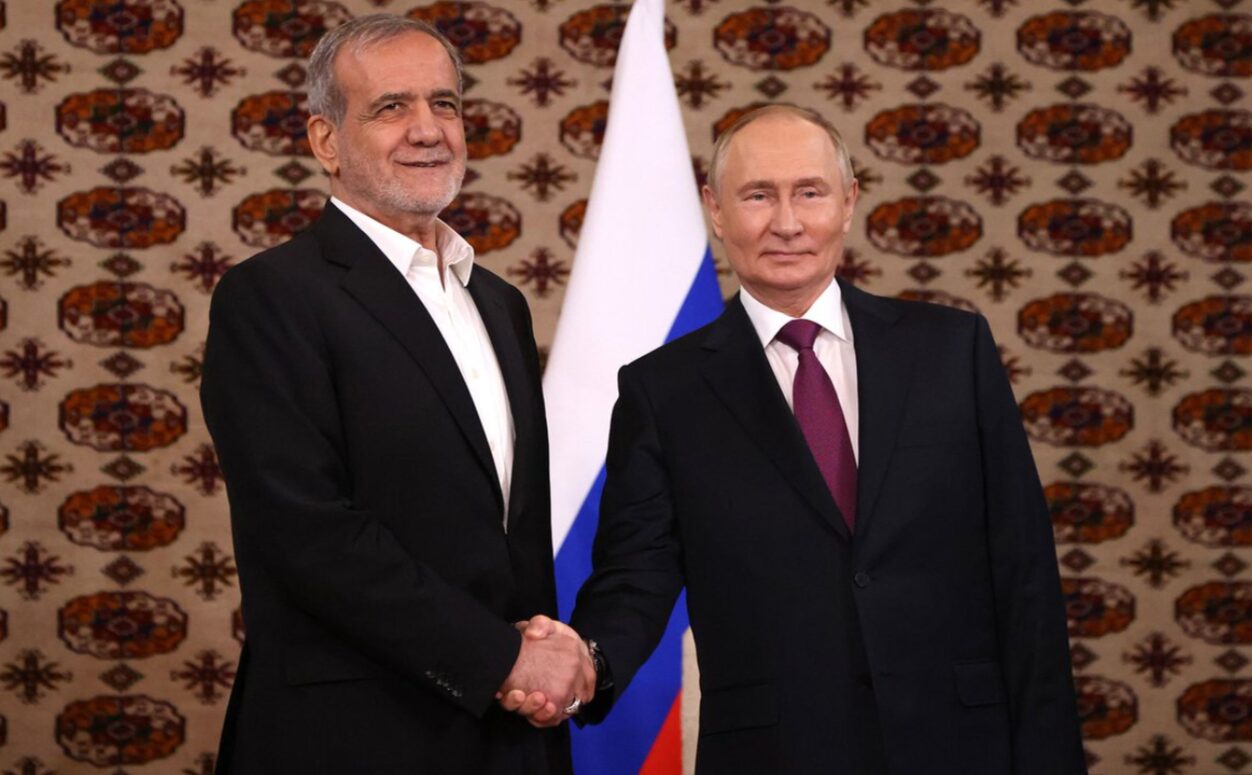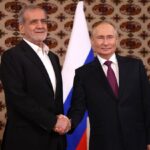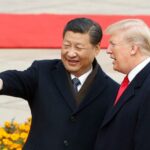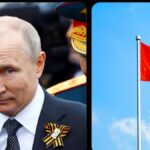RUSSIA & IRAN are set to ink a monumental COMPREHENSIVE STRATEGIC PARTNERSHIP treaty in January
In a groundbreaking development set to reshape the global political landscape, Russia and Iran are preparing to sign a historic Comprehensive Strategic Partnership treaty in January. This landmark agreement, poised to strengthen the already growing ties between the two nations, signals a new era of geopolitical collaboration that could have significant implications for global security, trade, and diplomacy. With both countries facing increasing isolation from Western powers, the treaty is expected to serve as a vital platform for deepening bilateral cooperation in a range of critical sectors.
The Growing Russia-Iran Alliance
Over recent years, Russia and Iran have increasingly aligned their interests, particularly in the context of Middle Eastern geopolitics. Their cooperation has been notably evident in Syria, where both nations have supported the regime of President Bashar al-Assad in the face of opposition from Western countries. This alliance has extended beyond military and political collaboration, as both nations share common interests in countering U.S. influence in the region and pushing back against Western sanctions.
The impending Comprehensive Strategic Partnership treaty represents the formalization of this growing alliance, marking a significant step in the evolution of their bilateral relationship. While the specific details of the treaty remain under wraps, sources suggest that the agreement will cover a wide array of sectors, including defense, energy, trade, technology, and infrastructure.
Key Areas of Cooperation: Defense and Military Collaboration
One of the most significant aspects of the Russia-Iran partnership has been their military cooperation. Both countries have shared interests in countering the influence of Western powers, particularly the United States. This partnership has led to joint military exercises and weapons deals, including the sale of advanced Russian defense systems to Iran.
The Comprehensive Strategic Partnership treaty is expected to deepen this military collaboration. Experts predict that Russia may expand its support to Iran in the form of advanced weaponry, technology sharing, and intelligence cooperation. Given the increasing tensions in the Middle East, particularly with the ongoing conflicts in Syria and Yemen, this partnership is likely to have a far-reaching impact on the regional balance of power.
Additionally, both nations may intensify their efforts to counter NATO’s presence in the region. Russia’s expertise in cybersecurity and electronic warfare could play a crucial role in bolstering Iran’s defense capabilities in the face of growing international pressures. In return, Iran may offer Russia access to its strategically significant location, providing Russia with further leverage in the region.
Energy and Trade: A Win-Win for Both Nations
Energy remains a cornerstone of the Russia-Iran relationship. Russia, as one of the world’s largest oil and gas producers, and Iran, with its vast natural resources, have much to gain from a deepened economic partnership. Despite facing U.S.-imposed sanctions, Iran remains one of the most energy-rich nations in the world, with the potential to supply large quantities of oil and natural gas to international markets.
Russia, in turn, has the technological expertise to help Iran develop its energy sector, which has been hampered by years of sanctions. The treaty could lead to joint ventures in the oil and gas sectors, infrastructure projects, and technology exchanges that would benefit both economies. With Western sanctions isolating both Russia and Iran, this growing alliance could create new energy trade routes and increase both countries’ influence in global energy markets.
In particular, Russia could help Iran to expand its oil exports, providing it with much-needed revenue to bolster its economy. For Russia, securing a reliable energy partner in Iran is also a strategic move to strengthen its dominance in the global energy market and to bypass the political risks associated with European and American markets.
Technology and Infrastructure Development
Beyond defense and energy, the Russia-Iran partnership is expected to make significant strides in the fields of technology and infrastructure development. Both countries face challenges in modernizing their infrastructure, and Russia, with its vast experience in scientific and technological innovation, could offer critical assistance to Iran.
Iran, which is known for its skilled scientific community, could become an important partner for Russia in areas like space exploration, nuclear technology, and telecommunications. Collaboration between Russian and Iranian tech companies could pave the way for innovations in various industries, while both countries stand to benefit from each other’s strengths.
In addition, there is growing speculation that the partnership could lead to the development of new transportation corridors, linking Iran with Russia and other countries in Central Asia. This could unlock new trade routes that bypass traditional shipping lanes, offering both nations a way to sidestep international sanctions and increase their global influence.
Impact on Global Politics and the West’s Response
The signing of a Comprehensive Strategic Partnership treaty between Russia and Iran will undoubtedly draw attention from Western powers, particularly the United States and European Union. Both countries have been subject to economic sanctions, and their growing collaboration presents a challenge to the U.S.-led international order.
The United States, in particular, has already expressed concerns about the increasing military cooperation between Russia and Iran, fearing that it could further destabilize the Middle East and undermine efforts to curb Iran’s nuclear ambitions. Washington’s response to the treaty is likely to include intensified sanctions or diplomatic pressure, especially as tensions in the region continue to escalate.
For Europe, the Russia-Iran alliance represents a shift in the balance of power in the Middle East. European nations, many of whom have traditionally sought to engage Iran diplomatically, may find themselves caught between the growing influence of Russia and the need to navigate complex regional dynamics.
What Lies Ahead for the Russia-Iran Partnership?
As the world watches closely, the signing of the Comprehensive Strategic Partnership treaty between Russia and Iran will mark the beginning of a new chapter in international relations. While the details of the agreement remain to be seen, it is clear that both nations are committed to deepening their cooperation in ways that will challenge existing geopolitical structures.
This treaty is not just a signal of closer ties between two nations; it is a clear message to the West that Russia and Iran are prepared to stand united in the face of growing international isolation. Whether this partnership will lead to greater stability or further conflict in the region remains to be seen. However, one thing is certain: the Russia-Iran relationship is entering a new, more powerful phase, with implications that will be felt far beyond the borders of both nations.
As we move into 2024, the signing of this treaty could mark a pivotal moment in the shifting sands of global geopolitics, with lasting effects on international security, trade, and diplomacy.

















Post Comment